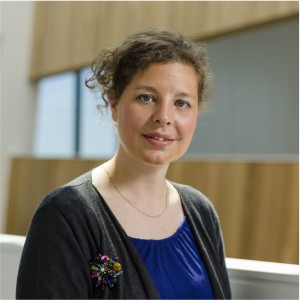Personalized Medicine and Molecular Diagnostic Risk Prediction in Epilepsy
 Date: Oct. 27, 2015
Date: Oct. 27, 2015
Time: 4pm
Where: B101, Abbotsford Campus
Epilepsy is the fourth most prevalent neurological disorder, affecting 65 million people worldwide…
Video: People & Places: Exploring Dr. Tara Klassen’s Lab
Dr. Tara Klassen is an assistant professor at the UBC Faculty of Pharmaceutical Sciences. She’s working on more personalized medicine, which for her means “the right drugs, at the right time, in the right dose for the right person.”
Posted by The University of British Columbia (UBC) on Tuesday, 15 September 2015
…and ~1% of the Canadian population. Molecular diagnostic tests exist for many of the human epilepsy genes, of which the majority encode ion channels that regulate cellular excitability. The most requested gene test in the severe epilepsies of infancy screens for variants in SCN1A, where >70% of individuals harbor a mutation in the Nav1.1 voltage gated sodium channel. These patients represent a spectrum of clinical disorders ranging from extreme seizures and cognitive delay (Dravet Syndrome) to mild (GEFS+), and age limited (BNFC) syndromes. To date, >600 causative genetic variants in SCN1A have been discovered where the majority are novel, arising de novo within the affected individual. The highly personal nature of these mutations combined with conventional bioinformatics has consistently failed to establish a correlation between the disease severity and genotype. In silico mutagenesis and structural analysis quantifying the energetic liability of pediatric epilepsy amino acid substitutions when integrated with clinical phenotype can be used to generate predictions of mutation severity, and pathogenic mechanism. This will further inform molecular testing for the purposes of diagnosis, prognosis and therapeutic decision making in pediatric epilepsy.
Tara Leah Klassen PhD
Assistant Professor | Faculty of Pharmaceutical Sciences
Director Pharmaceutical Sciences Analytical Suite Mass Spec Facility
The University of British Columbia | Vancouver Campus
Presented by the Biology Department, Faculty of Science

